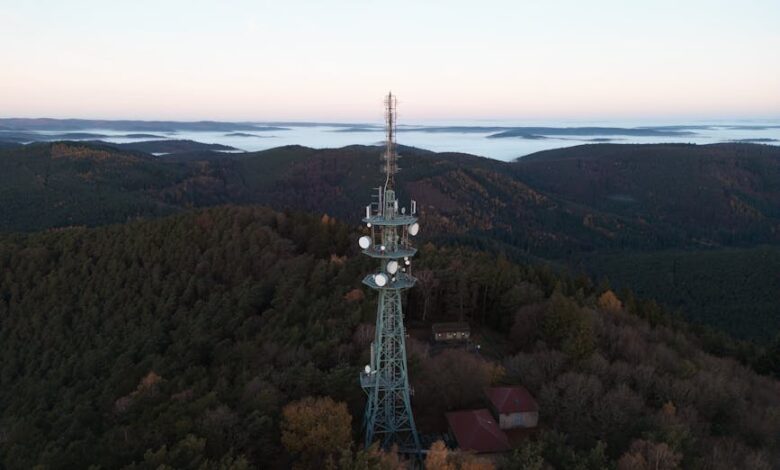Beyond the Court: An NBA Player’s Tech Vision

The modern world, for all its digital connectivity, often leaves us feeling surprisingly disconnected. We scroll through endless feeds, see where our friends are vacationing, or check into virtual events. Yet, when it comes to finding genuinely engaging, spontaneous social experiences right in our immediate vicinity, it can feel like navigating a maze blindfolded. We’ve got apps for everything from ordering groceries to dating, but what about truly organic friendship discovery tied to our immediate surroundings and, more importantly, shared passions?
Enter a name you might associate more with dazzling assists and clutch three-pointers for the New York Knicks: Miles McBride. While his day job involves dominating the basketball court, McBride is now making an unexpected, yet utterly fascinating, play in the tech world. He’s just launched Mmotion, a brand-new app designed to shake up the location-sharing game and offer a refreshingly different take on how we find our tribe.
It’s a bold move, and one that immediately sparks curiosity. In a landscape dominated by established giants, can an NBA player really dribble past the competition and redefine how we connect? Mmotion isn’t just another dot on the map; it’s an ambitious venture aiming to weave together the convenience of location sharing with the depth of social discovery, looking to carve out its own niche in an increasingly crowded digital universe.
Beyond the Court: An NBA Player’s Tech Vision
It’s not entirely new for athletes to venture into entrepreneurship. From investing in businesses to launching their own lifestyle brands, many professional sports figures leverage their platforms and resources beyond their primary careers. What makes Miles McBride’s Mmotion venture particularly intriguing, however, is its dive into the notoriously competitive and complex world of consumer tech, specifically social media.
Most athlete endorsements or business endeavors lean into areas like fashion, food, or fitness – sectors that align quite naturally with their public image and expertise. Building a social app from the ground up, however, requires a different kind of vision, a nuanced understanding of user experience, and a willingness to tackle significant technical and psychological challenges. It speaks volumes about McBride’s forward-thinking mindset and his genuine belief in Mmotion’s potential to solve a real-world problem.
Why would an NBA player, constantly on the road, with a demanding schedule, feel compelled to build such an app? One could speculate that his unique lifestyle provides a direct window into the challenges of maintaining and forging connections. Constantly moving between cities, spending time in new environments, and having limited time for traditional social outings might highlight the need for more efficient, interest-driven ways to connect with people who share similar downtime activities or passions.
This perspective could be Mmotion’s secret sauce. While many apps are built in Silicon Valley boardrooms, Mmotion appears to be born from a lived experience – a real need for deeper, more relevant social ties, especially for those whose lives don’t follow a conventional routine. It’s not just about knowing where your established friends are, but about discovering new connections that truly resonate.
The Mmotion Difference: More Than Just Dots on a Map
So, what exactly sets Mmotion apart in a world already saturated with communication tools and location trackers? The key lies in its stated ambition to combine “elements of location sharing with social discovery features to find nearby users with shared interests.” This isn’t just a subtle tweak; it’s a fundamental shift in philosophy.
Think about the current giants in the location-sharing space, like Snap Map. They excel at showing you where your *existing* friends are in real-time. It’s a fantastic tool for meeting up with your established circle or simply knowing if a friend is nearby. But what if you’re new to a city, looking to pick up a new hobby, or simply want to find someone else who’s into vintage board games or obscure indie films, right here, right now?
That’s where Mmotion aims to step in. It promises to move beyond passive awareness to active, interest-driven discovery. Imagine being able to see not just where people are, but also what they’re passionate about, and then filter that information to find like-minded individuals within a comfortable radius. It’s about bridging the gap between physical proximity and genuine compatibility, fostering connections that have a stronger foundation than just shared geography.
Navigating Privacy and Intentional Connection
Of course, any discussion around location sharing immediately raises questions about privacy and safety. Mmotion will undoubtedly need to navigate these concerns with robust features and transparent policies, giving users granular control over what information they share and with whom. The success of any social app, particularly one that involves real-world interactions, hinges on building trust and empowering users.
However, by emphasizing “shared interests,” Mmotion could potentially reframe the location-sharing narrative. Instead of merely broadcasting your whereabouts, the intent becomes more purposeful: to facilitate connections for specific activities or discussions. This intentionality could lead to more meaningful interactions, reducing the feeling of random exposure and replacing it with curated opportunities for connection.
It’s a smart play in an era where people are increasingly aware of their digital footprint and seek authentic connections over superficial interactions. Mmotion isn’t just about making friends; it’s about making *relevant* friends, fostering communities around shared passions that might otherwise remain undiscovered in the digital noise.
What This Means for the Future of Social Tech
Mmotion’s launch represents more than just a new app; it’s a fascinating case study in the evolving landscape of social technology. For years, the trend has been towards broad, all-encompassing platforms that try to be everything to everyone. We’re now seeing a counter-movement towards more niche, interest-specific, and intentional social apps.
This shift reflects a growing desire among users for genuine connection over passive consumption. People are looking for digital spaces that facilitate real-world interaction, encourage shared experiences, and help them find their micro-communities. If Mmotion can successfully execute its vision, it could indeed set a new standard for how we blend our online and offline lives, using technology to enhance, rather than replace, face-to-face engagement.
It also highlights the potential for unexpected innovators to disrupt established industries. Miles McBride, an NBA player, bringing a fresh perspective to social tech underscores the idea that truly valuable ideas can emerge from anywhere, especially from individuals who deeply understand a particular human need or frustration. His unique background might just give Mmotion the relatable edge it needs to stand out.
The challenge, as always, will be in execution, user adoption, and sustained engagement. But the premise is compelling: imagine a world where finding a pickup basketball game, a Dungeons & Dragons group, or even just someone to grab coffee with who shares your obscure love for 80s synth-pop, is as simple as opening an app. It’s a vision of social media not as a distraction, but as a genuine facilitator of community.
Conclusion
Miles McBride’s Mmotion isn’t just another app; it’s a statement. It challenges the existing paradigms of social connection, daring to suggest that there’s a more intentional, interest-driven way to discover our communities. By thoughtfully blending location sharing with a focus on shared passions, Mmotion offers a promising glimpse into a future where our digital tools genuinely enhance our real-world interactions, making spontaneous, meaningful connections not just possible, but effortlessly discoverable.
Whether Mmotion ultimately becomes a household name or a niche success, its very existence pushes the conversation forward. It reminds us that technology, at its best, should serve our human need for belonging, helping us find our people, wherever we are, and whatever our interests may be. It’s a compelling play, both on and off the court, and we’ll be watching to see how this exciting new chapter unfolds.





